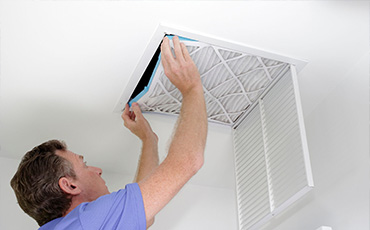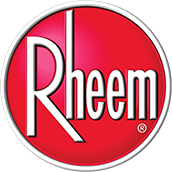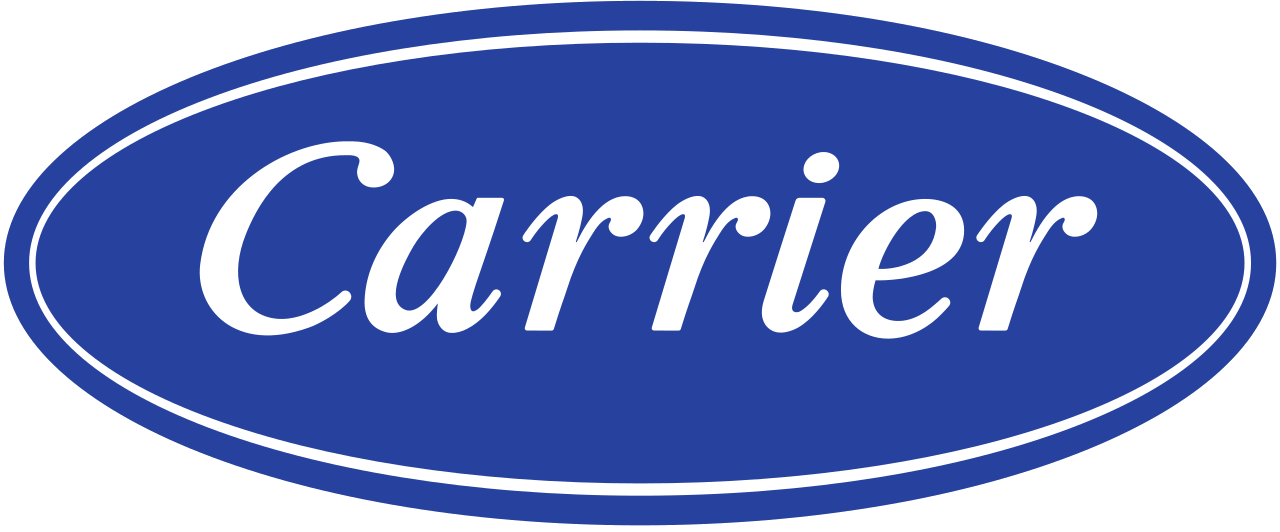5 HVAC Tips To Help Prevent Allergy Symptoms

People with allergies are often happy to come home and escape from the pollen and pollutants outside. Unfortunately, indoor air quality is often worse! Homes and buildings are so well-sealed these days that dust mites, dander, and other small particles get trapped inside. Your HVAC system might even be part of the problem — but it can also be part of the solution.
Here are five ways to improve indoor air quality, prevent seasonal allergies, and avoid mold and germs that can aggravate your symptoms.
1. Clean Your HVAC’s Outdoor Unit
Although your air gets filtered before entering the home, you still want an occasional AC cleaning service. A dirty condenser coil outside increases the stress on your AC, making it operate less consistently and do a poor job at dehumidifying. More moisture in the air makes many allergens worse.
2. Replace Air Filters Regularly
How often do you change your HVAC filter? Twice a year, every 90 days, every 30 days? The correct answer varies for each household. The brand and type of filter will have a recommendation, but other factors like pets, smoking, cooking, indoor plants, and the neighborhood’s environment can all clog a filter sooner or later.
Families with allergies should look for HEPA filters and products with a higher MERV rating and wash or replace them monthly.
Also, consider adding a whole-home air purifier that uses UV light to kill germs.
3. Don’t Forget Vents & Ducts
Top-down dusting can help with allergy symptoms. During spring cleaning and regular household maintenance, be sure to dust air vents and clean ductwork as far as you can reach. Extendable dusting cloth handles are your friend!
4. Avoid Running the Fan Constantly
Your heating and cooling probably have options for AUTO or ON, meaning the fan either automatically switches on and off with the thermostat or stays on all the time.
In the ON setting, the air handler will blow filtered air into the home even when the furnace or air conditioner isn’t running. Sounds good, right? Unfortunately, in some cases, this leads to moisture, mold, and mildew problems. When the unit cycles off, condensation forms. If the fan runs constantly, some moisture will blow into the filter, the ductwork, and your indoor air.
5. Get AC Repair for Humid or Smelly Air
When your conditioned air feels humid or smells like mildew, it’s tempting to blame the changing seasons and outdoor temperatures. In reality, your AC should be doing a fine job of dehumidifying and blowing clean air.
An AC tune-up service helps with cleaning and optimizing your equipment. For that dirty sock smell, you might need a repair for the condensate drain line. Get an HVAC pro to look for a potential solution to your spring and summer allergies!
Air Conditioning Services in St. Louis
If your AC unit is due for maintenance, replacement, or repair this season, contact Metro Heating & Cooling. Our experts have been serving the St. Louis area with expert HVAC service for over 35 years.
For AC services in the St. Louis and Fenton, MO, area, contact us today!
Improve Your Air Quality With Metro Heating & Cooling
While these tips will greatly improve your air quality, you don’t have to stop here! At Metro Heating & Cooling, we are committed to your home’s comfort and safety, so we offer comprehensive indoor air quality solutions. If humidity is causing your family any discomfort, whether because it’s too humid or dry, we can help. Our whole-home humidifiers and dehumidifiers will ensure your home is always at the ideal humidity level. We also offer air filters, air cleaners, and UV air purifiers to rid your indoor air of contaminants.
Breathe easier in your home with the help of Metro Heating & Cooling! Call (314) 845-5900 to discuss your air quality options.











